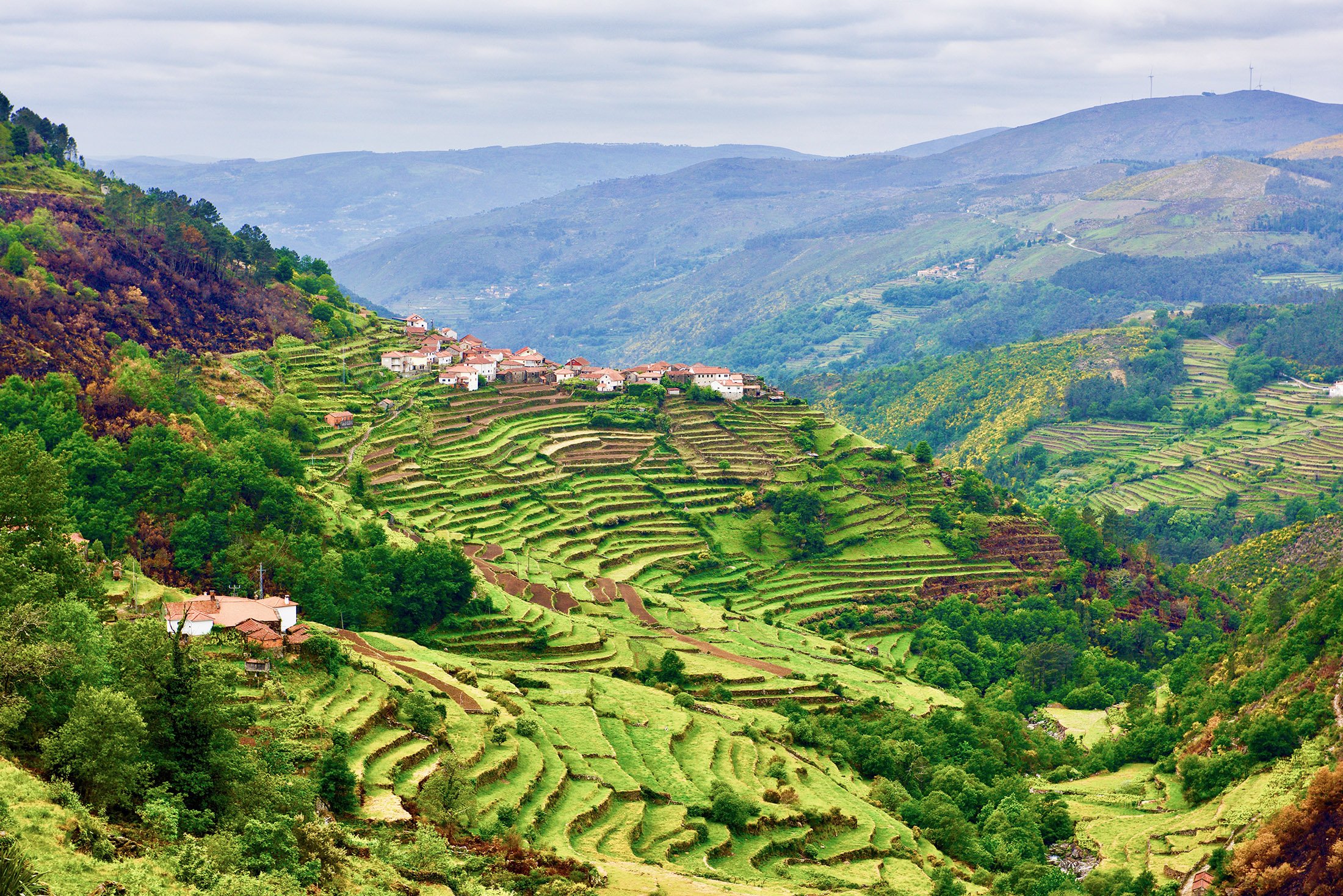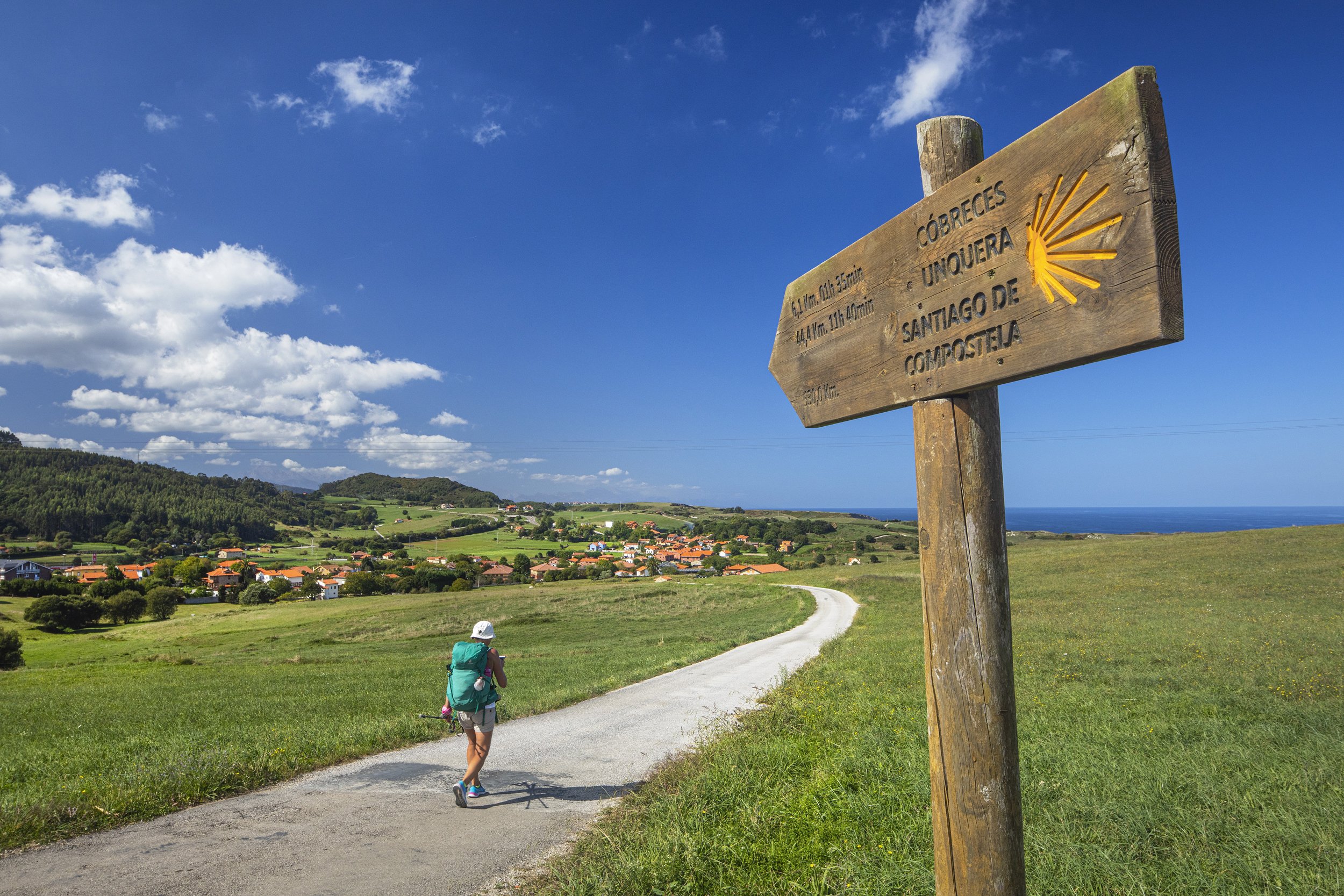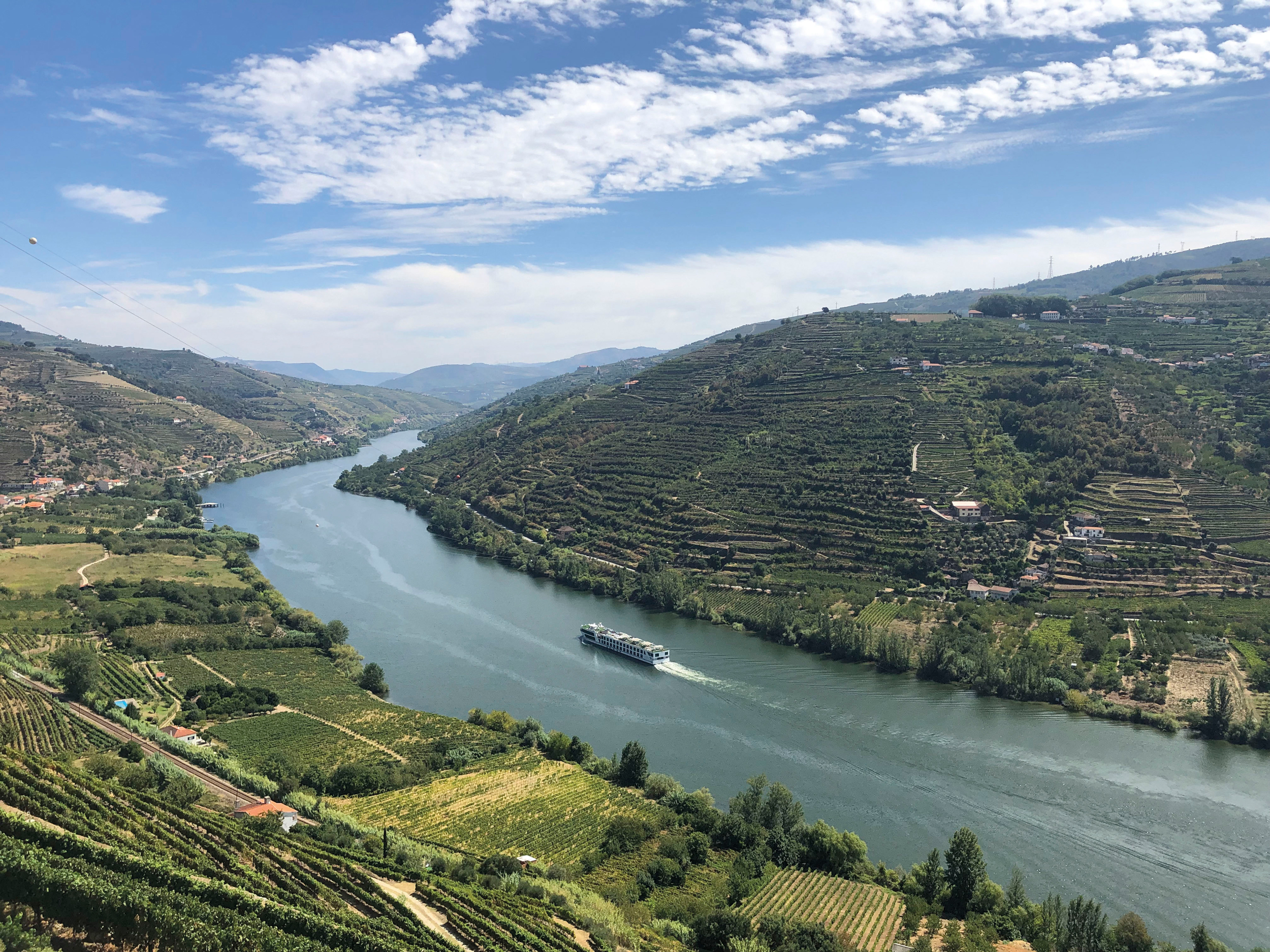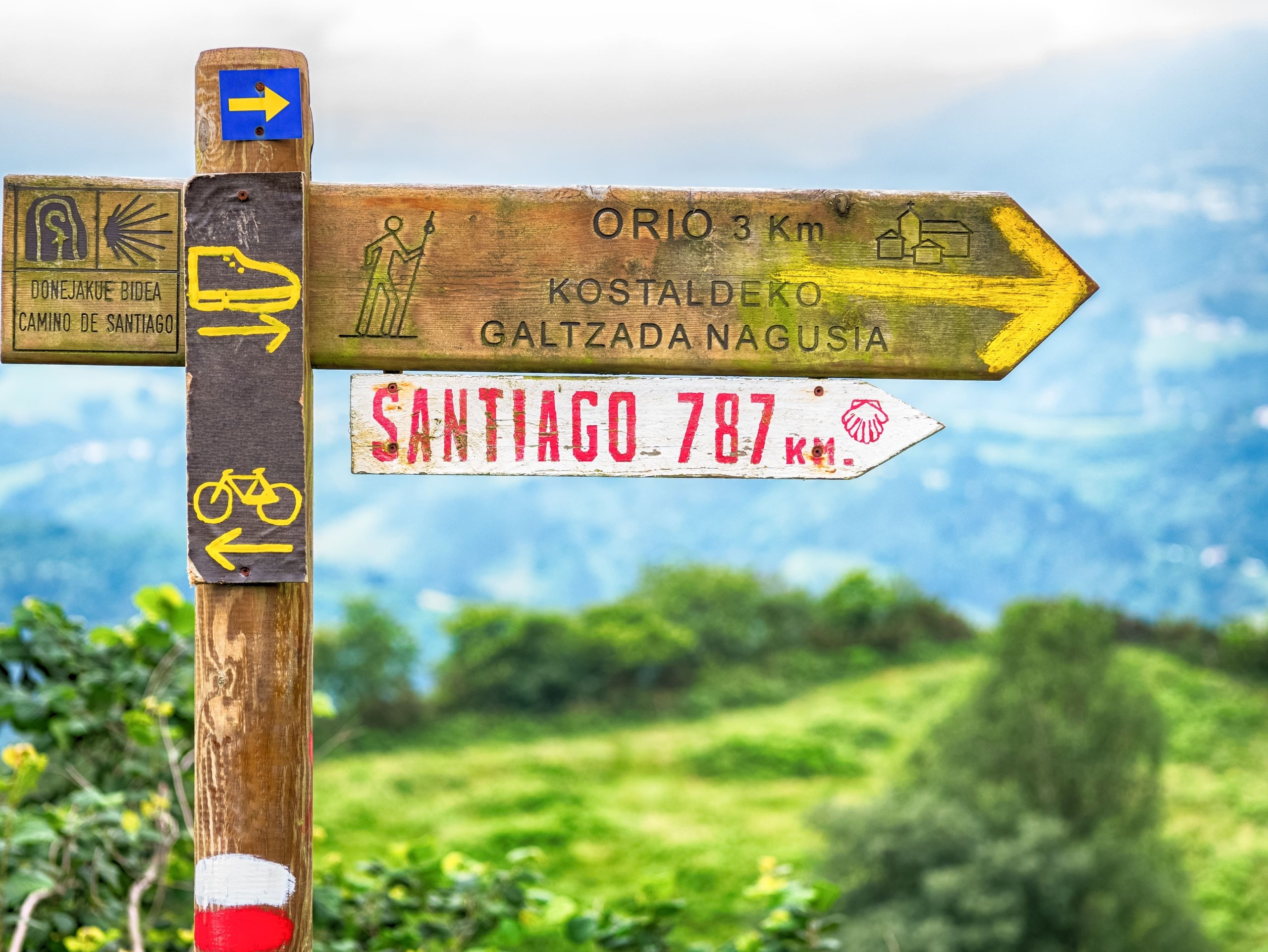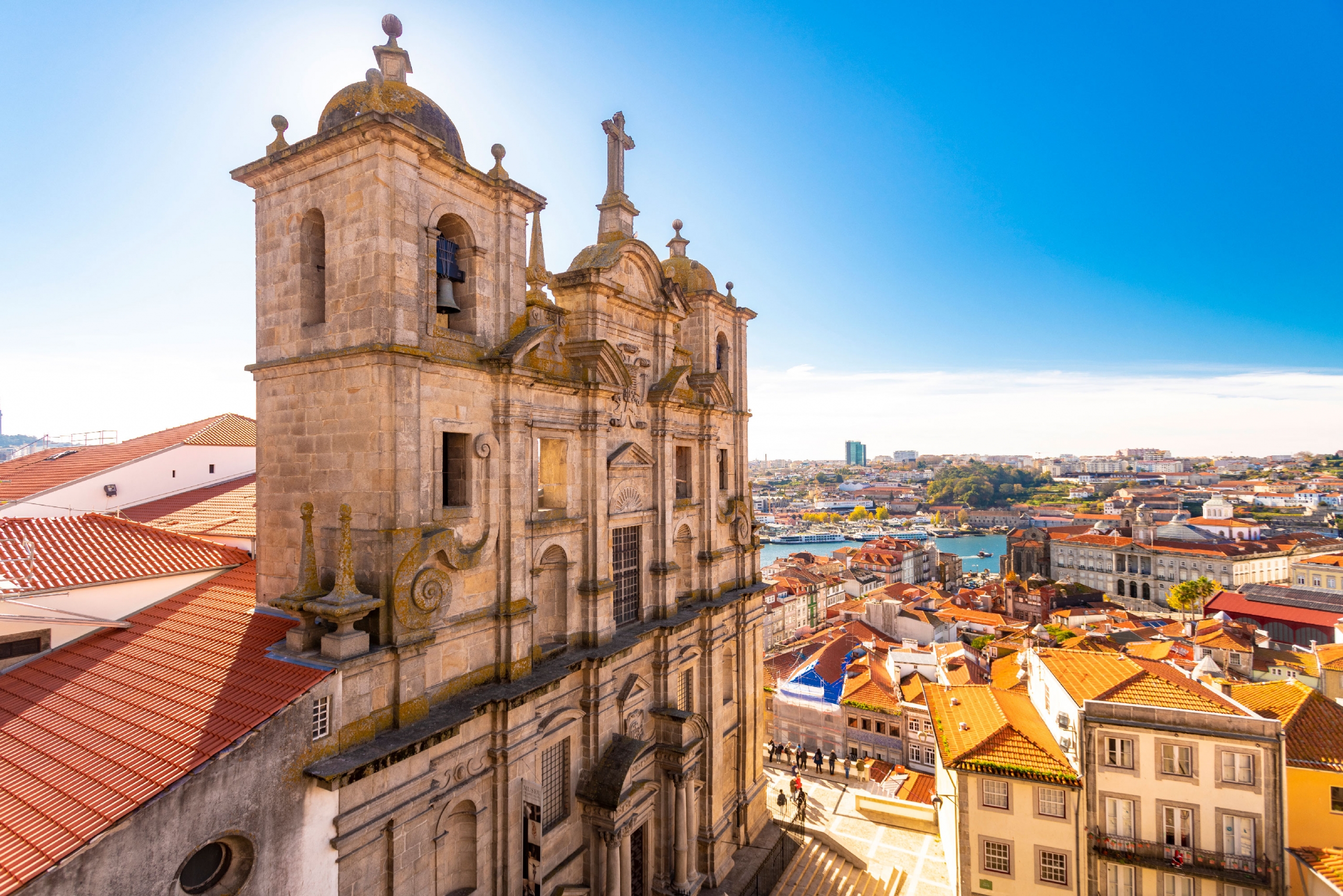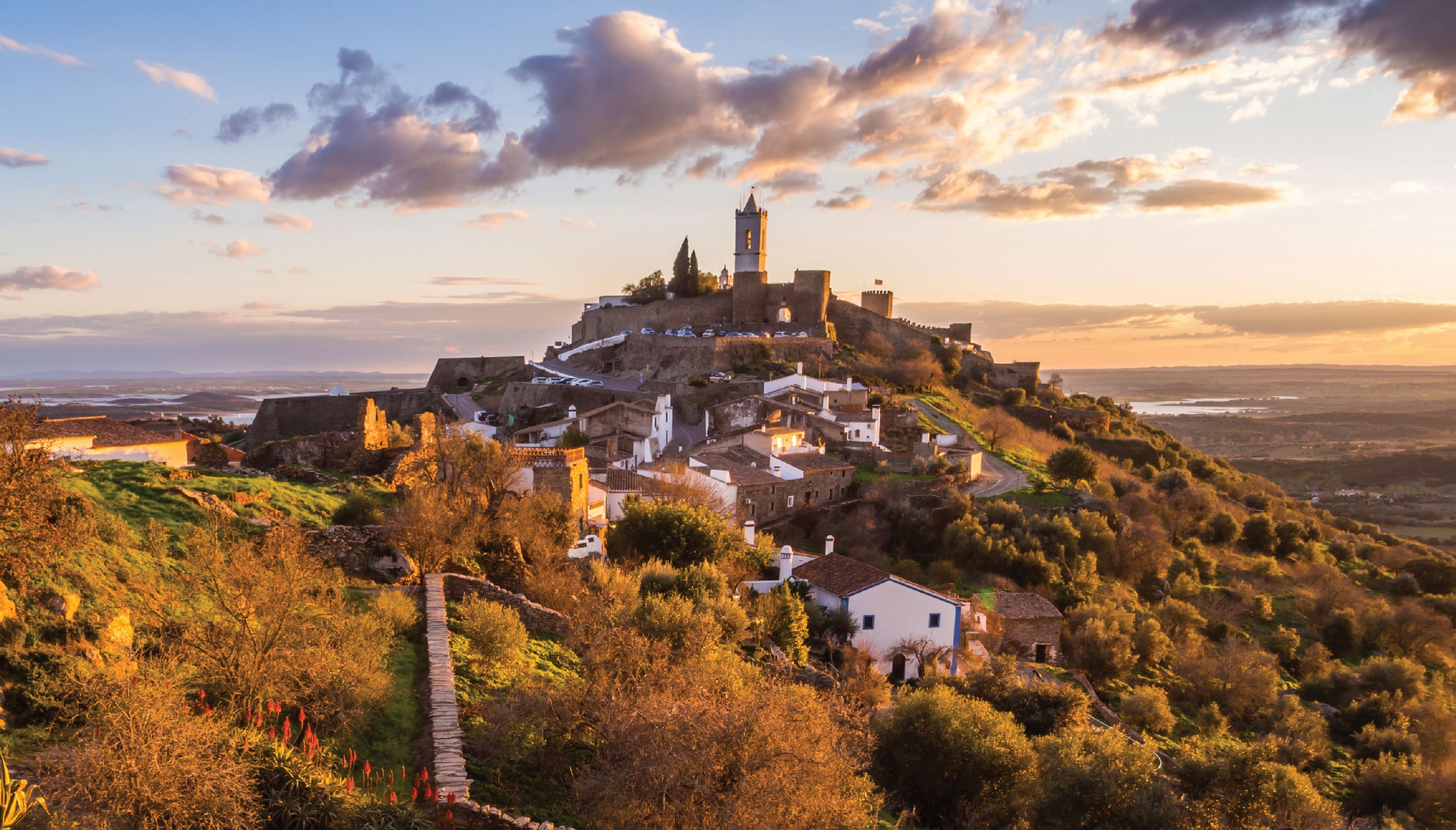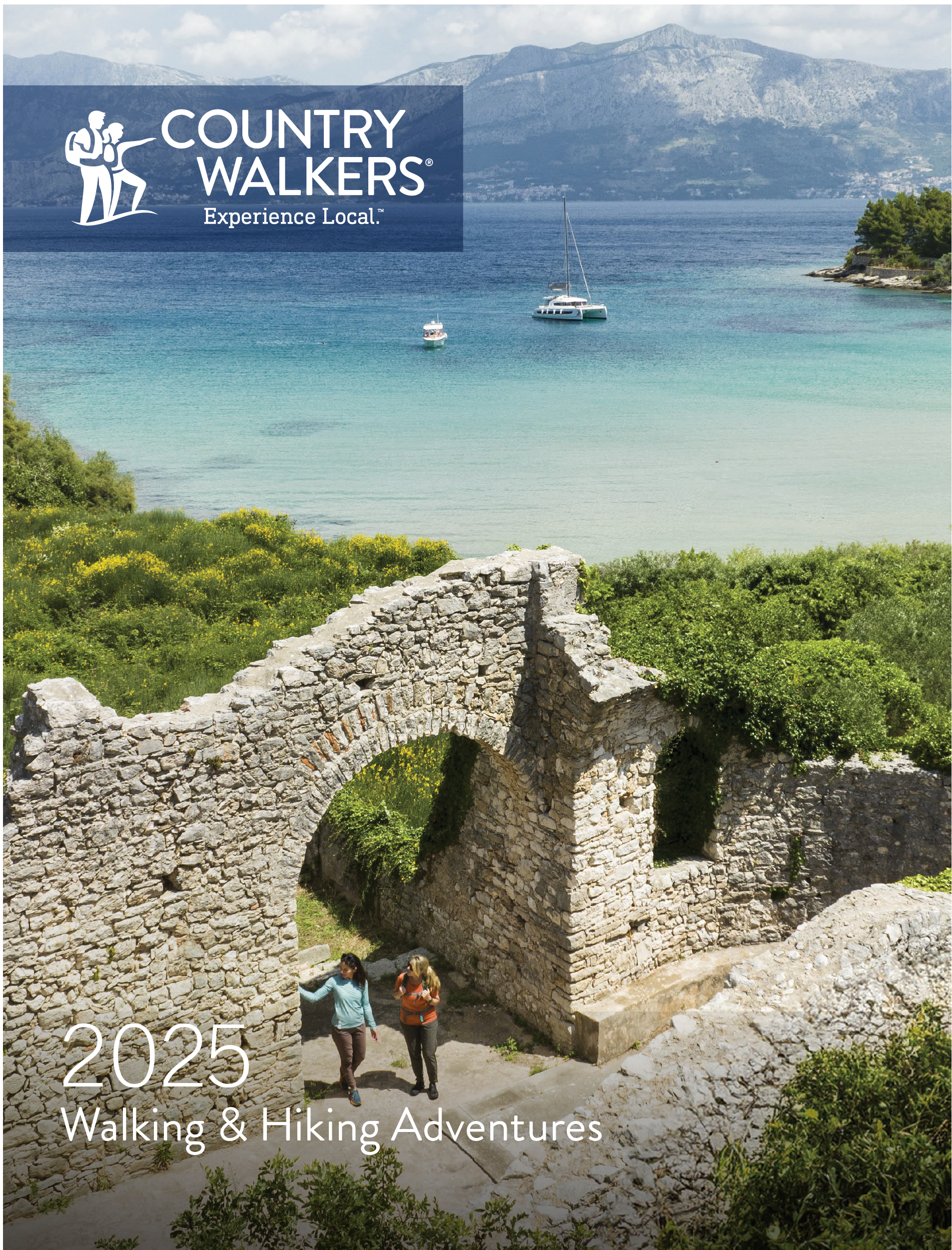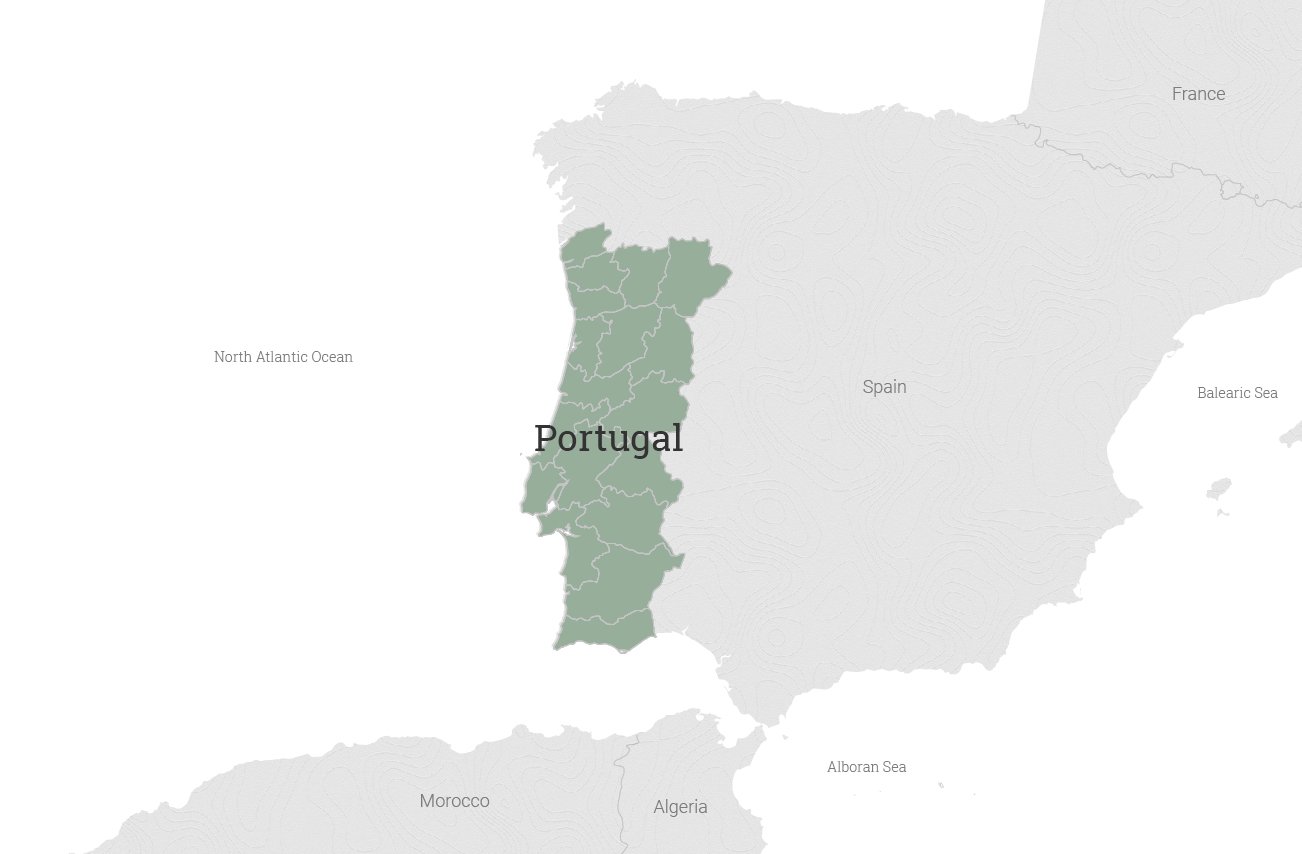
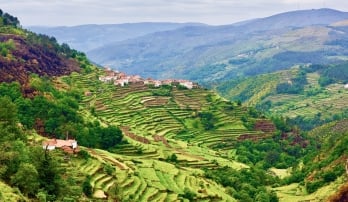
Portugal: Minho & the Douro Valley
Guided Walking
On this Douro River adventure, Country Walkers takes you beyond the river to discover the hospitality of Portuguese royalty and the charm of ancient hilltop villages. Explore the famous vineyards of the Douro Valley—tasting superb vintages and enjoying a relaxing boat cruise along the river’s sunlit banks.
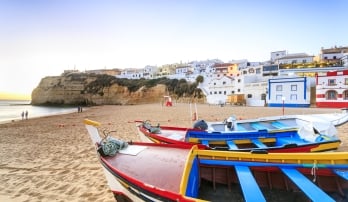
Portugal: Sintra & Rota Vicentina
Self-Guided Walking
You won’t find many walking adventures that let you explore Portugal’s romantic Alentejo—a remote region less well-traveled than the neighboring Algarve, but just as scenic. Stay in exceptional boutique accommodations and enjoy authentic Portuguese cuisine, rich wines, and a wealth of optional activities.
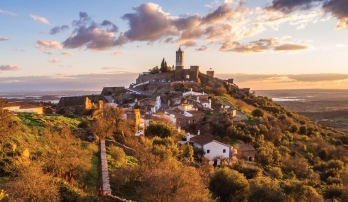
Portugal: Lisbon, Évora & the Algarve
Guided Biking
No need to choose: on this vacation, you can enjoy two of Portugal’s most renowned regions. Pedal deep into the cork forests and charming, white-washed villages of Alentejo before riding along the Algarve’s beautiful coastal region.
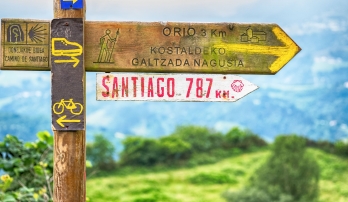

Spain & Portugal: Coastal Camino de Santiago
Guided Biking
To cycle the coastal portion of the Camino de Santiago from north to south, this VBT vacation is the only game in town! On this historic route, you’ll experience the charm of Spanish traditions during your stay at a peaceful Relais & Châteaux property—once an 18th-century paper mill—and meet VBT’s many local friends.
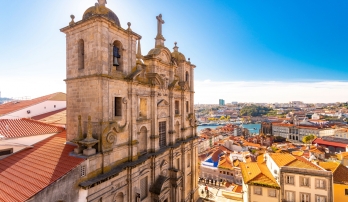

Portugal: Porto, the Silver Coast & Lisbon
Self-Guided Biking
If you’re looking for an independent cycling tour featuring warm Portuguese hospitality, this action-packed self-guided tour is it! Cycle from inn to inn on your own timetable—lingering on the beach at Nazaré or pausing to enjoy a vibrant sunset in the historic town of Óbidos.
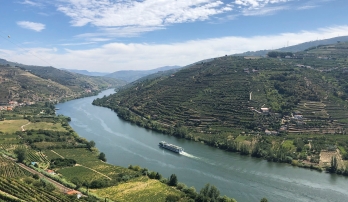

Portugal & Spain Bike & River Cruise: Douro Valley
Guided Bike And Boat
If you’re dreaming of a Douro Valley River cruise with a rich bouquet of cycling options and authentic Portuguese culture—this is the one! Indulge in the luxury of your five-star ship as you enjoy invigorating rides to medieval villages, experience an exclusive port wine tasting in Vila Nova de Gaia, and discover Spain’s “Golden City” of Salamanca.
Discover Portugal
Thanks to a widespread trail network that features gentle strolls, strenuous mountain hikes, and everything in between, Portugal is revered as one of Europe’s premier hiking destinations. Famed medieval trails and seaside cliff paths are a must on Portugal walking tour itineraries, where you can traverse the same routes used by ancient villagers as their sole means of passage. Here you can encounter white-spotted deer or rafts of otters lounging across a rocky shore break, all under the watchful eye of tawny owls, just as ancient travelers did.
In the secluded mountainsides of Minho and lush terraced vineyards of the Douro Valley, Portugal’s rich culture and history begins to truly reveal itself. Pair a bottle of locally vinted port with meals like Cozido à Portuguesa—wild boar stew, and fragrant baked goods prepared with local persimmon and tangerines.
Stroll the rustic Soria province, across vast farmlands that point the way to hilltop medieval villages crowned by castles. In the mountainous Minho province, remote stone hamlets filled with friendly faces welcome you at the gigantic Feira de Barcelos open-air market, lined with stalls of fresh fruits and cheeses, artisan handicrafts, and hand-embroidered linens.
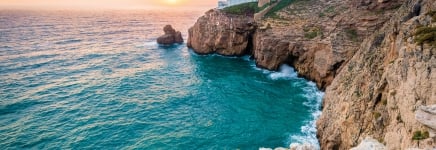

Country Highlights
- Trace ancient shepherd trails through breathtaking mountain vistas.
- Walk the medieval pathways that have long linked the charming stone villages of Serra de São Mamede Natural Park.
- Explore the spectacular Rota Vicentina along high Atlantic cliffs, stopping to explore fishing villages and to soak your feet in refreshing waters.
- Savor the rustic farm cuisine and succulent fresh seafood that have made Portugal a global culinary destination.


Listen to the Songs of Fate
Fado—Portugal’s mournful musical tradition—evokes nostalgia and longing like few other styles can. Witness performances by solo singers accompanied by classical Portuguese guitar that will offer fascinating insight into the country’s sea-faring soul, with songs invoking lost love, longing for the departed, and inspirational triumph.
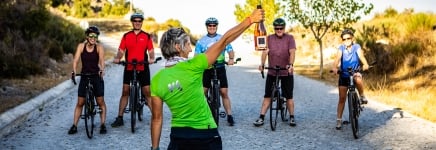

Raise a Glass Prepared for Decades
Meander the dimly lit caves of the ancient city of Porto, which store rack after rack of Portugal’s most famous eponymous drink. Partake in one of numerous tasting sessions while relaxing amid the terraced vineyards of local quintas—winery estates.
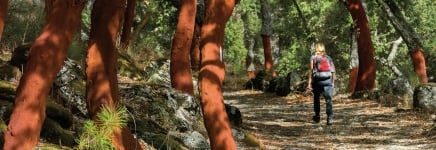

Explore the Cork Forests
Stroll through the flowering plains of Alentejo in summer, where sun and shadows fall over vast wine estates, olive groves and centuries-old summer homes. Here, the ancient oak forests have produced cork for millennia—one of the world’s oldest renewable, recyclable and biodegradable products.
Stories from Portugal
View All StoriesSelf-Guided Adventures with Support Every Step of the Way
For the first time ever, all Country Walkers self-guided vacations include turn-by-turn GPS navigation on every route....
Read Story

How 15 Friends Planned the Ultimate 71st Birthday Celebration
What’s so special about a 71st birthday? Ordinarily, not a lot. But for 15 friends scattered around the country, it’s become an exceptional excuse to keep in touch, deepen life-long...
Read Story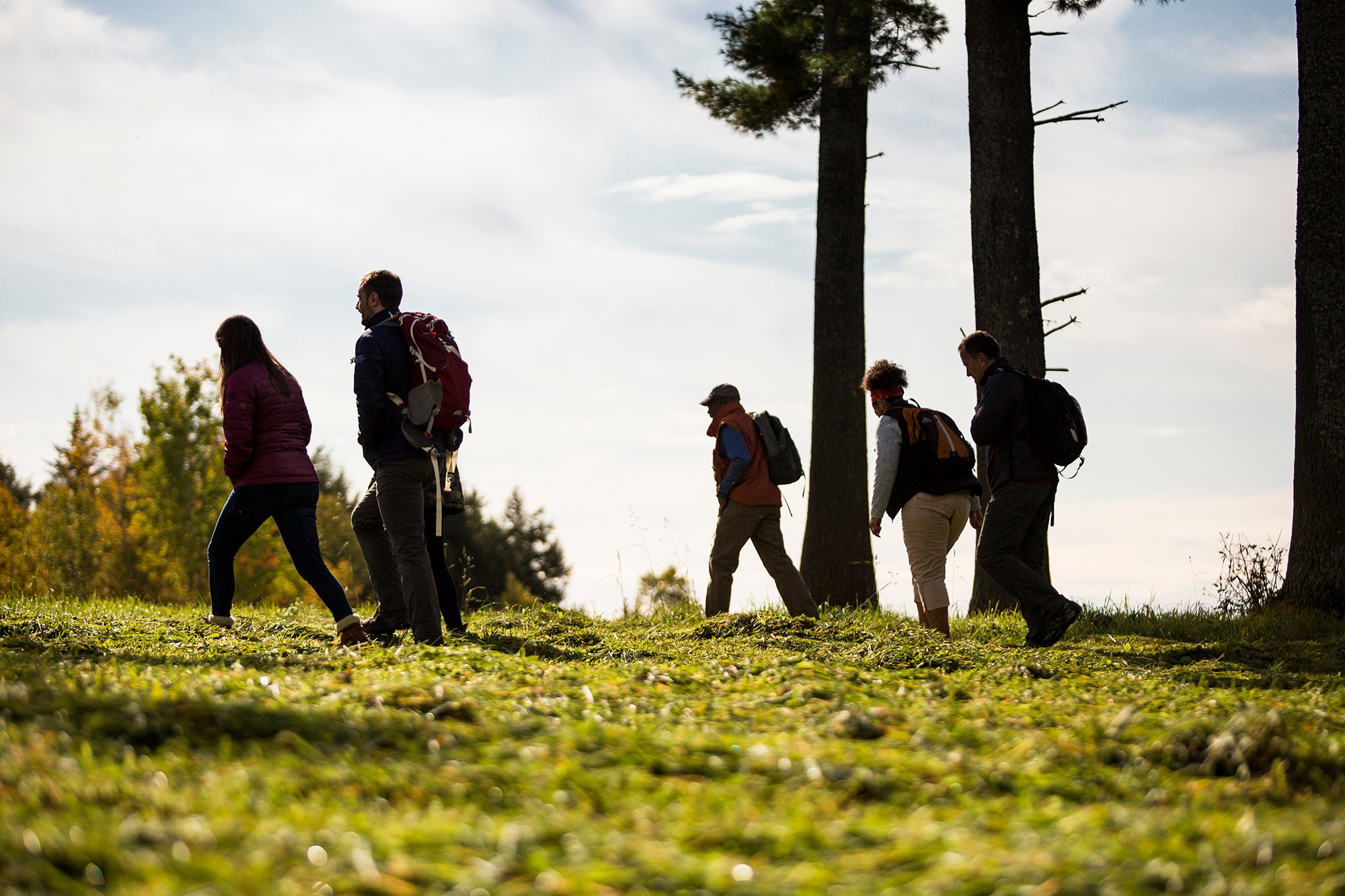

Memorable Moments from Flex-Guided Adventures
What makes a Guided Walking Adventure special? It’s the best of both worlds: enjoying a group of like-minded traveling companions, and having a few opportunities to explore entirely on your...
Read StorySpeak with a Tour Consultant
Have questions? We’re here to answer them.
Mon-Fri 8:30 a.m. to 6:30 p.m. ET
Be the First to Get News & Special Offers




